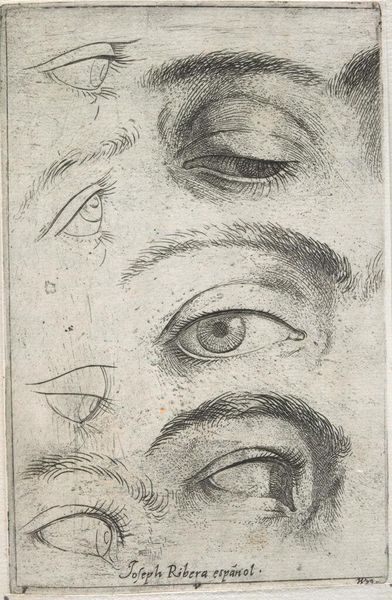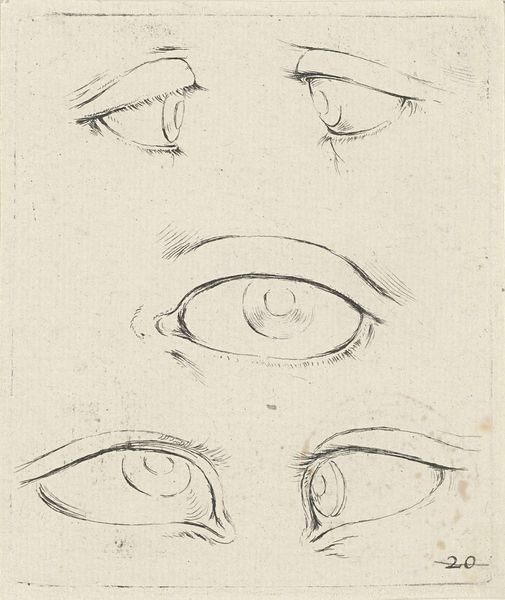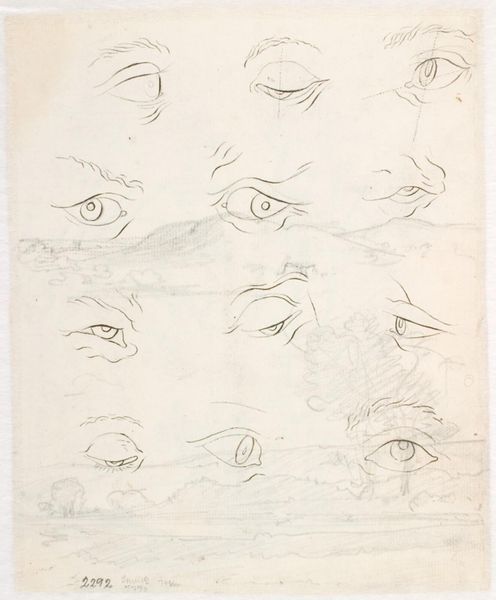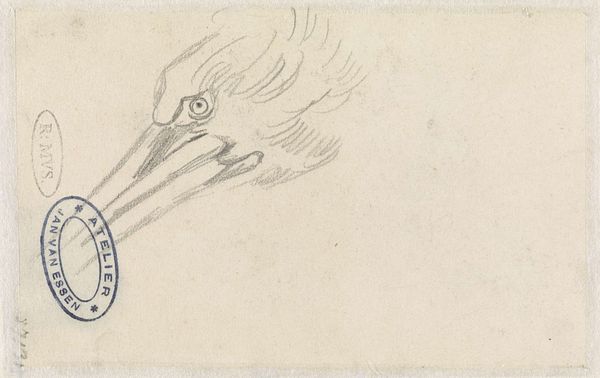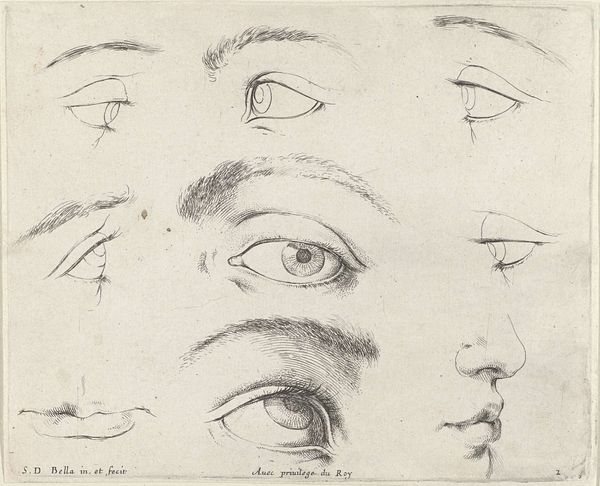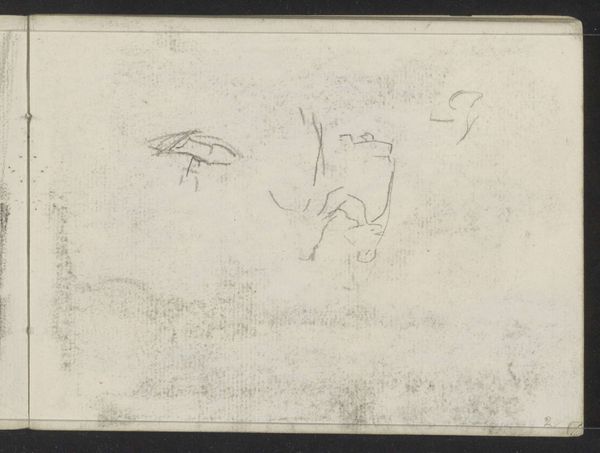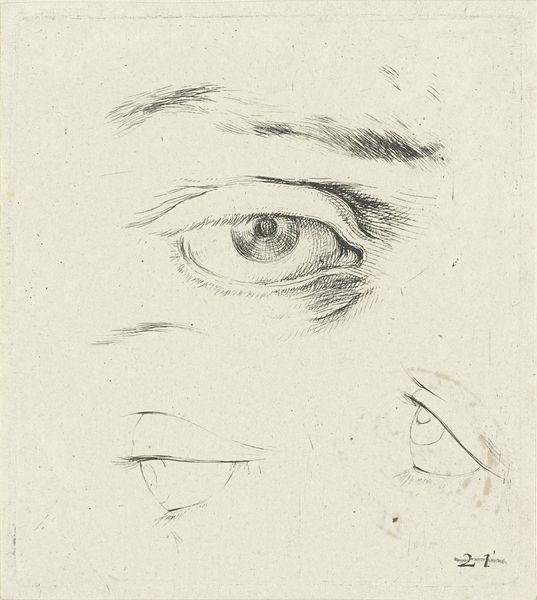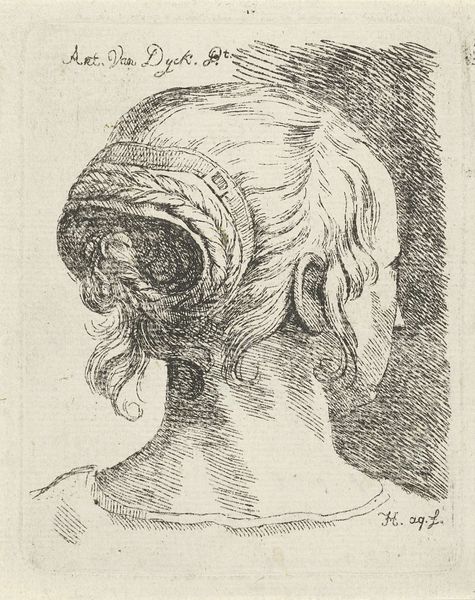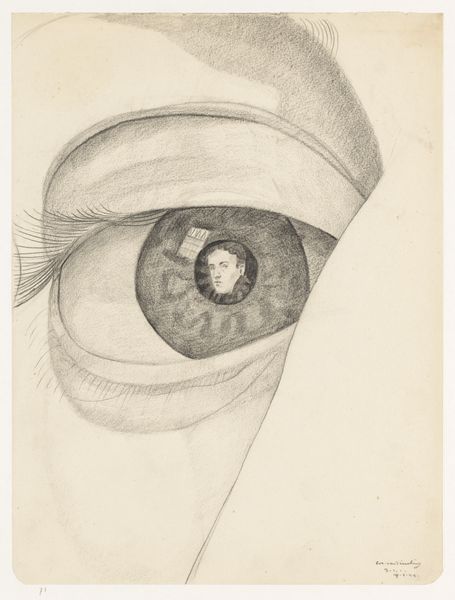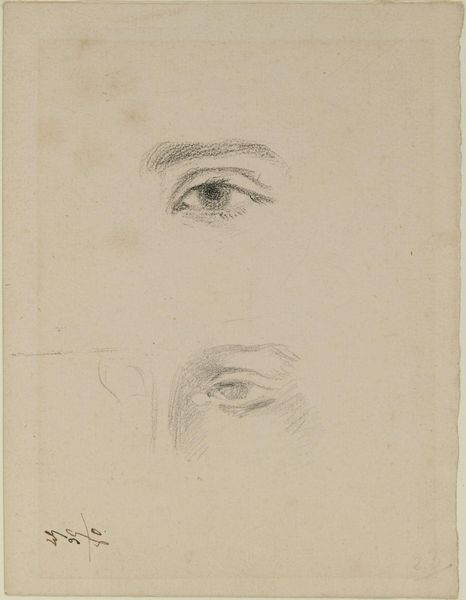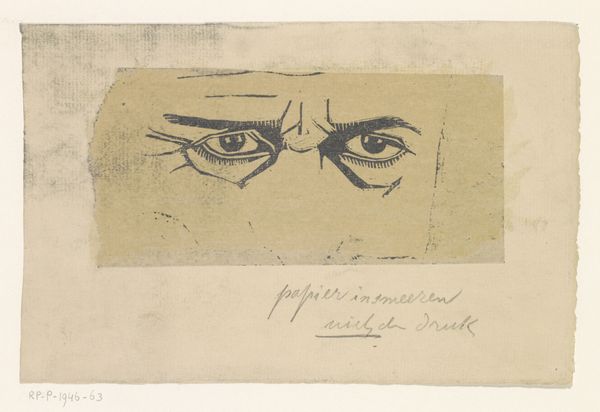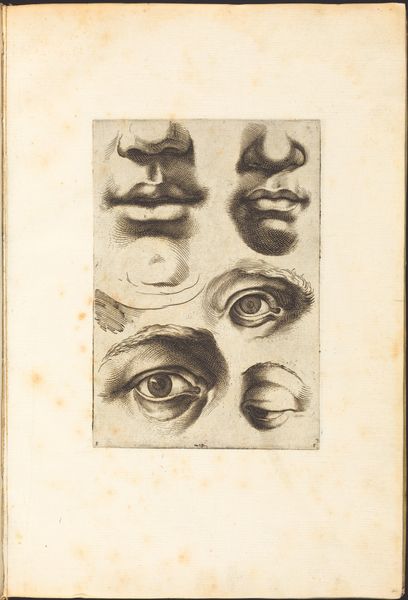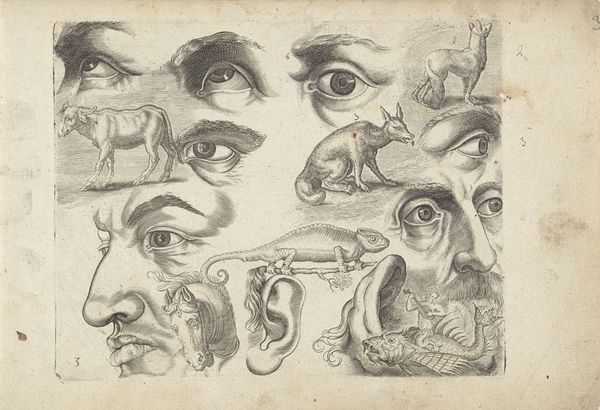
drawing, print, etching, graphite
#
portrait
#
pencil drawn
#
drawing
#
baroque
# print
#
etching
#
figuration
#
pencil drawing
#
graphite
#
portrait drawing
Dimensions: Plate: 1 9/16 × 3 3/4 in. (3.9 × 9.5 cm)
Copyright: Public Domain
Wenceslaus Hollar made this print, "Two eyes and two heads," using the etching process, a printmaking technique that democratized image production. The image begins with a metal plate, usually copper. Hollar would have coated the plate with a waxy, acid-resistant substance, then scratched away the coating with a needle to expose the metal underneath. When dipped in acid, the exposed lines would be eaten away, creating grooves. Ink was then applied to the plate, filling the etched lines. Finally, the plate was pressed onto paper, transferring the image. The beauty of etching lies in its capacity for detail. Look at the meticulous cross-hatching used to create the tonality of the skin. This was not just a way to reproduce images, but a medium for artistic expression in its own right. The etching process, with its reliance on skilled hand work and chemical reactions, collapses the boundaries between craft and fine art, while making images cheaply available for mass consumption.
Comments
No comments
Be the first to comment and join the conversation on the ultimate creative platform.
